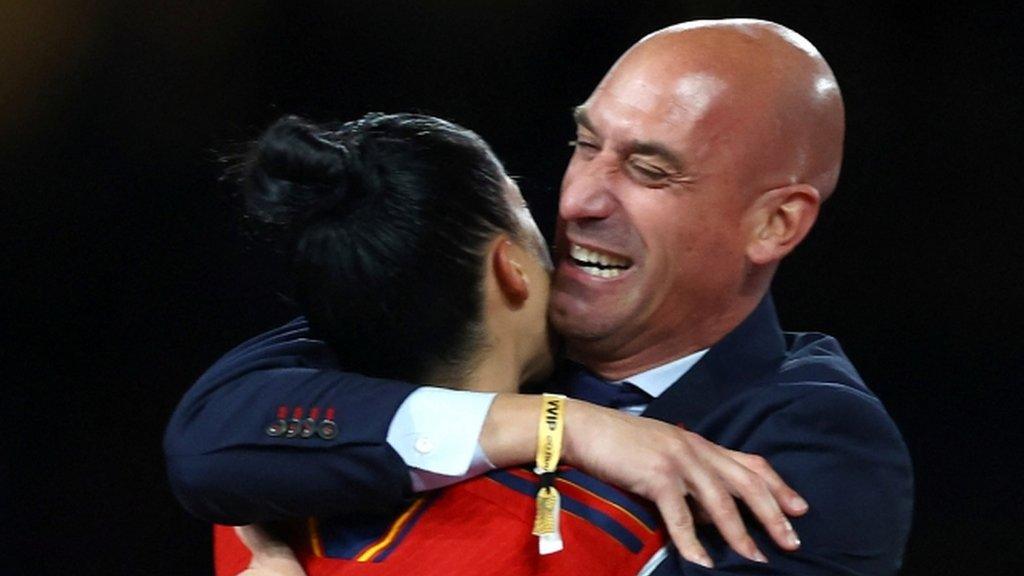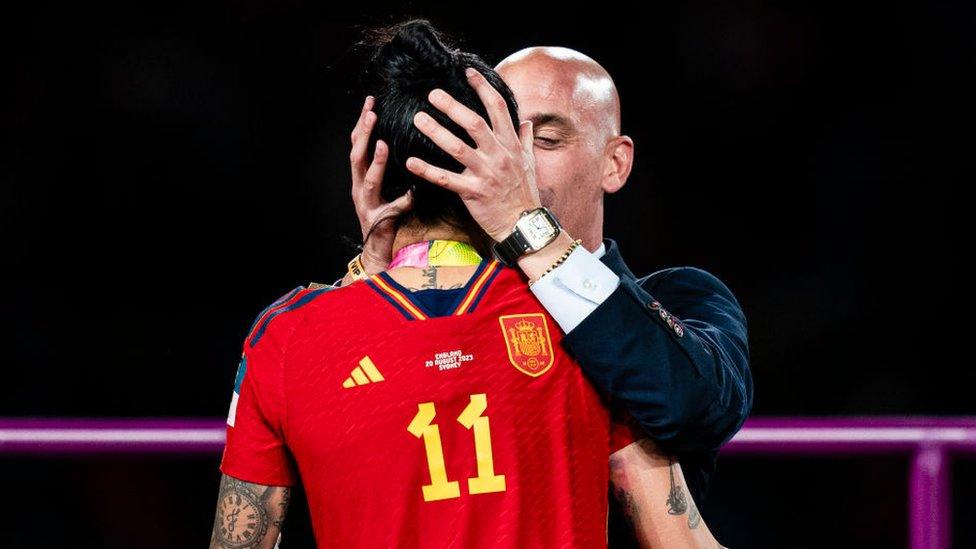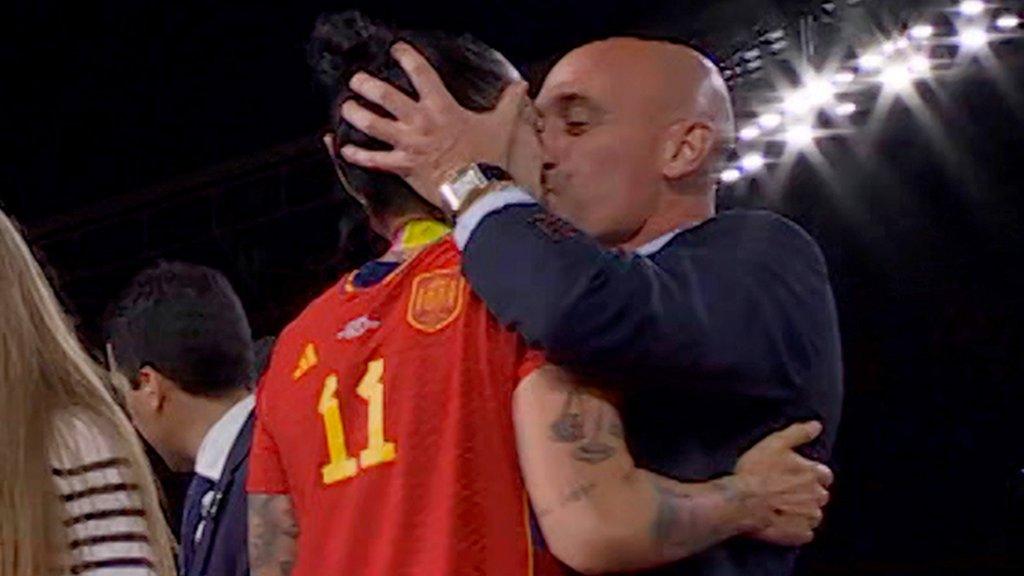Luis Rubiales resignation a win for Spain's women's team
- Published
Three weeks after winning the World Cup, Spanish women's team, especially striker Jenni Hermoso, are seen as having waged and won an additional battle in the field of sexual consent.
But it's one which was dragged out over three weeks and has threatened to tarnish Spain's image as a modern sports superpower.
That second victory appeared to be sealed when Luis Rubiales resigned as president of the Spanish football federation, finally succumbing to the pressure caused by the kiss on the mouth that he gave Ms Hermoso after the World Cup final. It was a kiss that he claimed was consensual but which she insisted was not.
Mr Rubiales announced his resignation during an interview with the British journalist Piers Morgan, a move which reflected the international dimension of the whole affair.
"This feminist country moves forward faster and faster," wrote the second deputy prime minister, Yolanda Díaz, on social media, as she celebrated the resignation announcement. "The transformation and improvement of our lives is inevitable. We are with you, Jenni, and with all women."
Those comments followed a huge social backlash against Mr Rubiales over his behaviour, which included street demonstrations and the creation of a new slogan taking aim at the sexism the football boss was seen to embody: #SeAcabó (It's Over).
Watch: Fans and players protest over Rubiales kiss
Mr Rubiales is also facing a criminal investigation by Spanish prosecutors, which could potentially see him face trial for sexual assault.
Spanish society has shifted substantially over the last half-decade when it comes to gender equality and sexual consent. That change has been driven in great part by the left-wing coalition of Pedro Sánchez, which has approved a series of laws aimed at promoting equality and clamping down on non-consensual relations.
Outrage at the so-called la manada (or wolf pack) case, in which five men were initially found guilty in 2018 of sexual abuse - but not sexual assault - after gang raping a young woman in Pamplona, also brought these issues firmly to the fore of public debate.
International Women's Day, on 8 March, has become a major date in the Spanish calendar in recent years, as hundreds of thousands of women turn out onto the streets across the country.
But the equality debate has also been politically divisive, with many, particularly on the right, resisting such changes and warning that men are being criminalised. Many observers pointed to the applause Mr Rubiales received when defiantly defending his innocence before his own federation two weeks ago as proof of how that mindset remains.
Mr Rubiales himself may have been close to the governing Socialist Workers' Party which has been very proactive on gender equality, but his stance throughout this controversy has been entirely at odds with it.
'Public decapitation'
In a statement explaining his resignation, he said he was innocent of any wrongdoing and the victim of a persecution. His mother, Ángeles Béjar, was so convinced of his arguments that she locked herself in a church and staged a hunger strike, before being taken to hospital.
Others, mainly online, have also defended Mr Rubiales, such as Hermann Tertsch of the far-right Vox party, who denounced the "public decapitation of Rubiales". However, while the Spanish football federation initially supported its beleaguered president, it has been notable how the consensus in Spain over the last three weeks has been so clearly against him.
A poll by 40dB published on 5 September showed that 72% of Spaniards thought that the federation president's behaviour at the World Cup was unacceptable, including nearly half of voters of Vox - the party which has been most vocal in opposing the government's equality agenda.
That opprobrium may have also been due to embarrassment in his home country at the fact that when celebrating the World Cup win he grabbed his crotch. But it does also suggest that Mr Rubiales's now-infamous kiss may have marked a change in Spain regarding how men and women interact.
Related topics
- Attribution
- Published11 September 2023

- Attribution
- Published6 September 2023

- Published26 August 2023

- Attribution
- Published21 August 2023
